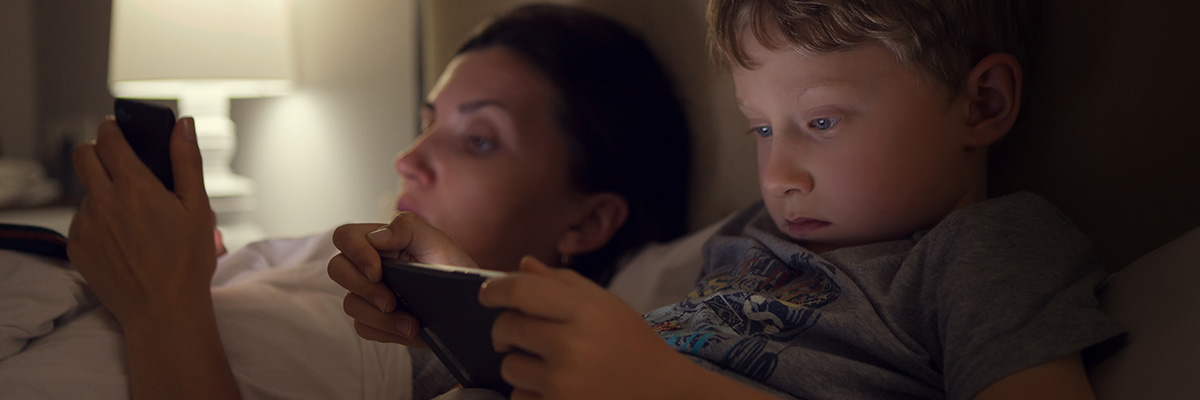
Article at a Glance
• When and how your kids watch TV and screens may be as important as how much they watch.
• School-age kids with access to screens at bedtime score lower on quality of life assessments.
• Simple family routine hacks might help your entire family get more, and better, sleep.
Many parents believe that watching TV or a tablet can help children wind down and fall asleep. And often, it seems to work, so it can quickly become a crutch. But if your child wakes up in the night or rises long before the alarm goes off, the screen may still be to blame.
Past studies have found that 3- to 5-year-olds who regularly watch TV after 7:00 pm or who watch violent TV shows were more likely to have sleep problems. These problems included things like awakening during the night, nightmares, struggling to fall asleep, and suffering from sleepiness during the day.
More recent studies that include all screen-based media (like tablets and smartphones) have also found bedtime screen viewing leads to more sleep problems for kids of all ages. Not only do these kids get less sleep, they score lower on quality of life assessments. Since about 2/3 of adolescent’s self-report having access to screens at bedtime, this is a big potential problem. And if that viewing takes place in a dark room, the problems intensify.
The blue light emitted by modern devices is more powerful at suppressing our brain’s melatonin secretion than other types of light. When melatonin isn’t secreted on time, or in the right amounts, our circadian rhythm—the body’s “sleep clock”— is disrupted.
So what’s the best way to help your child sleep? According to experts, a predictable nighttime ritual that includes relaxing activities like bedtime stories and cuddling is best. Watching a screen is too stimulating. Even if a child falls asleep, they may not be able to settle into the sleep rhythm necessary for sustained sleep.
It might also be helpful to move up your child’s bedtime a bit. Ironically, young children and babies who are overtired often have difficulty sleeping. If your child is having a hard time going to sleep at night, try putting her to bed thirty minutes earlier rather than later.
A great way to cut your children’s screen time is to not have a TV or tablet in their room. Studies have shown that children who had a TV in their room watched about 40 more minutes of TV a day and had more sleep problems than their peers. Having a screen in their room also makes it easier for kids to watch violent shows without your supervision.
According to older studies based on television and even newer studies based on all screens, viewing screens earlier in the day isn’t disruptive to sleep. But if your child is having trouble winding down or staying down, consider a tweak to your family routine. Swap more calming activities like reading practice, story time, bathing and crafts into the evening, while pushing their allotted screen time to the morning or afternoon.
For More Information:
How Can I get my Child to Fall Asleep and Stay Asleep?
8 Way to Tame the Screen Time Beast
Healthy Sleep Habits (AAP)

Dr. Nelson's practice interests include asthma, behavioral health, nutrition, and special healthcare needs.